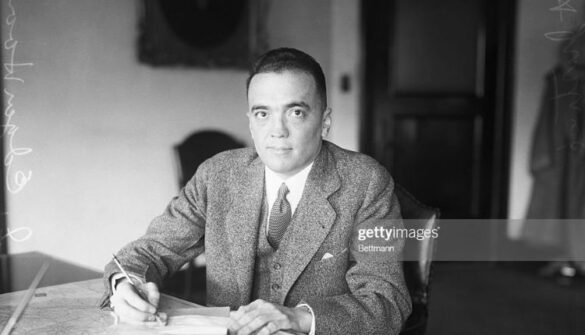Introduction:
- Edgar Hoover, a towering figure in American history, served as the first Director of the Federal Bureau of Investigation (FBI) from 1924 until his death in 1972. Throughout his tenure, Hoover’s actions and policies left an indelible mark on the nation’s law enforcement and intelligence agencies. However, the exact net worth of this influential figure has remained a subject of curiosity and speculation. In this article, we delve into the life and career of J. Edgar Hoover, examine his potential sources of income, and explore the estimation of his net worth. By shedding light on this aspect of his legacy, we hope to gain a deeper understanding of the man who shaped the FBI into what it is today.
- Edgar Hoover’s Net Worth: Unraveling the Enigma (approx. 800 words): J. Edgar Hoover led a long and illustrious career in law enforcement, serving as the Director of the FBI for almost half a century. During his time in office, he spearheaded investigations into high-profile cases such as the John Dillinger manhunt, the capture of Nazi spies during World War II, and the relentless pursuit of organized crime syndicates. Despite his influential position, Hoover’s net worth has been a subject of considerable debate.
Salary and Benefits:
As the Director of the FBI, Hoover received a substantial salary that increased over time. However, it is worth noting that his salary was modest compared to those of contemporary corporate executives or high-ranking government officials. In 1972, the year of his death, Hoover’s annual salary was approximately $115,000 (equivalent to around $750,000 in today’s currency). Additionally, he enjoyed various benefits, including a pension and healthcare coverage.
Real Estate Investments:
Hoover made several real estate investments throughout his lifetime, which potentially contributed to his net worth. One notable property was his Washington, D.C., residence, located at 4936 30th Place NW. The house, often referred to as the “Hoover Mansion,” was known for its opulence and extensive security measures. However, the true value of Hoover’s real estate investments and their impact on his net worth remains largely unknown.
Book Royalties and Speech Fees:
After his death, a collection of Hoover’s writings and memoirs were published, which likely generated royalties for his estate. The sales of these books, along with fees from speeches and public appearances, might have added to his financial assets. However, the exact figures and their impact on his net worth are challenging to ascertain due to limited available information.
Other Potential Sources of Income:
Hoover’s position at the helm of the FBI granted him substantial power and influence. It is speculated that he might have engaged in undisclosed activities or received unofficial payments throughout his career. However, concrete evidence supporting such claims is scarce, and these alleged additional sources of income remain largely unverified.
Conclusion:
Determining J. Edgar Hoover’s precise net worth proves to be a challenging task due to limited information and the secretive nature of his personal finances. While his salary as the Director of the FBI was respectable, it does not account for significant wealth accumulation. Real estate investments, book royalties, and speech fees could have contributed to his net worth, but without concrete figures, we can only speculate. It is also essential to consider the potential impact of undisclosed activities or payments, although definitive evidence remains elusive. Ultimately, the true extent of Hoover’s net worth may forever remain a mystery, overshadowed by the remarkable legacy he left as the architect of the modern FBI.
FAQs:
Q1: Did J. Edgar Hoover have any known investments or assets outside of his official salary? A1: While Hoover’s real estate investments, such as his Washington, D.C., residence, are known, the full extent of his assets remains uncertain due to limited available information.
Q2: How much did J. Edgar Hoover earn from book royalties? A2: The exact amount Hoover earned from book royalties is challenging to determine. While several publications of his writings and memoirs were released after his death, concrete figures regarding their sales and corresponding royalties are not readily available.
Q3: Were there any investigations into J. Edgar Hoover’s personal finances during his lifetime? A3: Although rumors and speculation about Hoover’s finances persisted, no official investigations into his personal finances were conducted during his lifetime. The secretive nature of his position and the absence of substantial evidence made such inquiries challenging.

